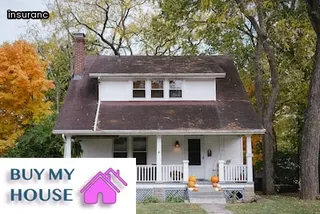Understanding the obligations of homeowners in Maryland when it comes to HOA and COA assessments is essential for navigating a foreclosure process. Homeowners must be mindful of their dues, as failure to pay them on time can trigger a foreclosure action.
It's important to understand that these associations are non-profit organizations that manage and maintain common areas and amenities, such as swimming pools, landscaping, and playgrounds. To cover these expenses, the association collects fees from its members in the form of HOA or COA assessments.
These assessments are usually paid monthly or annually, depending on the association rules. In some cases, special assessments may also be imposed for large projects or major repairs.
If homeowners don’t pay their assessments on time, the association can place a lien against their property. After a period of delinquency determined by state law and/or the specific covenants of the homeowner's contract with the association, foreclosure action may be taken by the HOA or COA if unpaid dues remain outstanding.
To avoid this situation, it is important for homeowners to know their rights and responsibilities when it comes to paying HOA or COA assessments in Maryland.

When navigating Maryland's HOA foreclosure process for unpaid dues, it is important to understand the difference between HOA assessments and special assessments. HOA assessments are typically a fixed fee charged annually or quarterly to cover normal operating costs associated with the HOA such as landscape maintenance, common area utilities, and administration fees.
Special assessments differ in that they are one-time fees used to cover major repairs and improvements to common areas that fall outside of regular operating costs. These can be triggered by unexpected or emergency situations such as a decline in property values or damage from natural disasters.
Both types of assessments must be paid on time in order to avoid high penalty costs, late fees, and even potential foreclosure proceedings initiated by the HOA. It is also important to understand the rules and regulations set forth by the local HOA concerning payment deadlines so that homeowners can remain in compliance with their dues requirements.
Homeowners Associations (HOAs) in Maryland have the authority to assess homeowners for dues and other costs related to the upkeep of the community, such as landscaping and snow removal. When a homeowner fails to pay these dues, the HOA may turn to foreclosure proceedings.
It is important for homeowners to understand the assessment process that HOAs follow when dealing with unpaid dues so that they can be prepared should their own situation arise. Generally, HOAs will begin by sending out notices of delinquency and warnings of foreclosure.
If payment is not forthcoming, then they typically proceed with filing liens or initiating foreclosure proceedings. Homeowners must remain aware of their rights throughout this process, as HOAs are required to follow certain state laws and regulations in order to legally foreclose on a home.
Additionally, homeowners should consider seeking legal counsel if needed in order to better understand their options and ensure that all applicable laws are being followed during the assessment process.

When navigating Maryland's homeowners association (HOA) foreclosure process for unpaid dues, it is essential to consider the payment options available. Homeowners may be able to pay assessments in full or in installments.
The HOA must provide a payment plan if requested by the homeowner and must accept installment payments if the assessment amount exceeds $1,000. If such payment plans are offered, they usually require that the homeowner make monthly payments over a period of 10-12 months.
The HOA can also agree to accept less than the full balance due as long as both parties agree to the terms of the agreement. In some cases, homeowners can even negotiate with their HOA to waive all or part of the outstanding dues in order to bring the account current and avoid foreclosure.
Finally, homeowners should always remember that any agreement made between them and their HOA must be in writing for it to be legally enforceable.
As a homeowner association (HOA) board member, it’s important to understand the legal process of Maryland's foreclosure process for unpaid dues. The key to successfully collecting delinquent fees before they become excessive is to implement effective collection policies and procedures.
Establishing a consistent policy for how long members have to pay overdue fees before penalties are imposed, and when foreclosure proceedings should begin, can help HOAs maintain financial stability. Additionally, creating an efficient system for tracking unpaid dues that includes notifications and warnings sent in a timely manner can help prevent the issue from escalating and improve collections.
It’s essential to provide clear communication and establish boundaries so homeowners know what is expected of them and the consequences if they don’t comply with established rules. Ultimately, by having strong collection policies in place, HOAs will be able to navigate Maryland's foreclosure process more effectively while ensuring their financial health.

Navigating Maryland's HOA foreclosure process for unpaid dues can be an intimidating process. Fortunately, homeowners can take advantage of assessment payment incentives to mitigate this stress.
Payment incentives vary by community, but usually include discounts or reduced interest rates for early payments or long-term agreements. Some communities may even consider special circumstances when providing payment incentives and may be willing to negotiate with homeowners on a case-by-case basis.
When assessing the options available, it is important to identify any fees associated with using payment incentives and weigh them against potential savings. Homeowners should also keep in mind that the decision to use an incentive must be made within a certain time frame in order to take advantage of the offered savings.
It is also important to understand any requirements that are necessary in order to qualify for the incentive and make sure they are met before requesting assistance from the HOA. Utilizing assessment payment incentives can help homeowners navigate Maryland's HOA foreclosure process more easily and potentially save money on their unpaid dues in the long run.
When it comes to navigating Maryland's HOA foreclosure process for unpaid dues, crafting effective late notice documents is essential. It is important to understand the necessary steps and applicable regulations when dealing with delinquencies, as well as how to best communicate the issue with homeowners.
When creating a late notice document, it should clearly state the amount of unpaid dues as well as any late fees that may have accumulated since payment was due. Additionally, the document should include a timeline for when payment must be received in order to avoid further action by the association.
The language used in the document should be straightforward and easy to understand, so that homeowners can accurately comprehend what is expected of them. Finally, make sure all relevant information such as legal contact details are included in the late notice letter for homeowners' reference.

When navigating Maryland's HOA foreclosure process for unpaid dues, it is important to be aware of the laws surrounding debt collection and licensing. In Maryland, homeowners must comply with the Fair Debt Collection Practices Act, which requires debt collectors to provide consumers with a written notice about their rights before collection activities begin.
Additionally, all debt collectors doing business in Maryland must be licensed by the Commissioner of Financial Regulation. It is important for homeowners to understand these laws in order to protect themselves during the foreclosure process and ensure that their rights are not violated.
Homeowners should also be aware of how long they have to pay their dues before a foreclosure action is taken. Knowing the timeline can help homeowners avoid costly legal fees and maximize their chances of avoiding foreclosure.
For residents of Maryland who are struggling to pay their Homeowners Association dues and facing foreclosure, there are options to structure payment plans that can accommodate their financial situation. It is important for delinquent homeowners to understand the process and become familiar with their rights as a homeowner under state law.
Consulting a lawyer or financial advisor may be necessary to create a payment plan that meets both the homeowner's needs and state regulations. Many HOAs offer flexible payment options such as installment plans or deferral of payments until finances improve.
It is also important to be aware of any late fees or penalty interest that may apply when creating a payment plan. Finding ways to lower expenses, such as reducing energy consumption, may help homeowners find additional funds for their HOA dues.
The goal should always be finding an affordable solution that keeps the resident in their home while satisfying the HOA obligations.

It is important for homeowners associations (HOAs) in Maryland to take proactive measures to ensure residents are up-to-date on their assessments and dues. One of the most effective strategies HOAs can use to encourage timely payment is by providing clear, concise information regarding the assessment process and due dates.
This ensures that residents are aware of the consequences should they fail to make payments, such as late fees and potential foreclosure. Additionally, it is helpful for HOAs to offer multiple payment options—such as online, phone, or mail—to ensure residents have ample opportunities to remit their payments on time.
Furthermore, offering flexible payment plans can be beneficial in encouraging residents who may be experiencing financial hardship to remain current on their dues. Finally, providing incentives for those who pay on time or ahead of schedule—such as discounts or rewards points—may also be a useful strategy in encouraging prompt payment from all members of the HOA community.
Homeowners' Associations (HOAs) are organizations that help maintain the quality of life in a particular neighborhood or community. In order to do this, they typically collect fees from homeowners to pay for services such as landscaping and snow removal.
In Maryland, if an HOA member fails to pay their dues, the association can begin a foreclosure process to recover payment. The specific steps taken by an HOA vary depending on local regulations, but generally involve sending multiple notices of delinquency and providing homeowners with an opportunity to address any outstanding balances before foreclosure proceedings are initiated.
After a certain period of time has passed without payment being received, the HOA may then file a lien against the property and pursue foreclosure through court action. It is important for Maryland homeowners to be aware of their obligations and how HOAs handle situations where payments are not made on time in order to avoid costly legal proceedings.

When developing a late fee policy for unpaid dues in Maryland, it is important to consider a few best practices. First, it is essential to be aware of the relevant state laws and regulations.
In Maryland, all homeowner associations (HOAs) must follow the rules set by the state’s Real Property Code. Additionally, HOAs must provide members with clear written policies regarding late fees for unpaid dues.
They should also specify how late fees are calculated and communicated to members. Furthermore, HOAs should have an established timeline for members to pay their dues before foreclosure proceedings begin.
This timeline should include deadlines for when payment is due as well as any additional fees or penalties that may be charged if payment isn’t received on time. Finally, HOAs should ensure they have a process in place to track delinquent payments and take action if necessary, such as initiating foreclosure proceedings if needed.
By following these best practices, HOAs can ensure they are meeting their legal obligations while developing an effective late fee policy that works both for them and their members.
Failure to pay an assessment can have numerous consequences for a homeowner in Maryland who is subject to a homeowners' association (HOA). The first potential consequence is that the HOA may begin the process of foreclosure.
This means that the homeowner could lose his or her home if they are unable to repay the unpaid dues, late fees, and other related costs. Furthermore, even if a person manages to avoid foreclosure of their property, they may still be responsible for court costs, legal fees and other associated expenses.
Additionally, any unpaid assessments will become liens on the property that can affect its sale or refinancing until paid in full. Finally, it's important to note that HOAs have some limited authority when it comes to collecting past-due assessments; therefore, it is important for homeowners to seek legal advice about their rights and obligations under state law before navigating the foreclosure process.

Navigating Maryland's HOA Foreclosure Process for unpaid dues can have a significant impact on property values if the dues remain unpaid. Homeowners associations (HOAs) are responsible for collecting assessments, or regular payments homeowners must make in order to fund necessary community improvements and services.
If these payments aren't made, HOAs in Maryland may initiate foreclosure proceedings on properties with overdue assessments. This can be detrimental to property values as potential buyers would want to avoid taking on a property with past due HOA assessments.
Foreclosure not only affects the value of the home itself, but also impacts surrounding properties as well. With fewer people willing to purchase homes with delinquent HOA dues, the overall value of area real estate decreases due to decreased demand.
Additionally, homeowners who do not pay their HOA fees may be subject to additional liens against their homes which further reduces their market value. Fortunately, there are ways for homeowners to stay ahead of their HOA fees and ensure that their properties don't face foreclosure or devaluation caused by late payments.
Partnering with an experienced attorney can help Maryland homeowners understand the implications of unpaid assessments and keep them from facing foreclosure and its associated consequences.
Navigating Maryland’s HOA foreclosure process for unpaid dues can be a daunting task. Knowing what to expect and having the right advice is critical in this situation.
It is important to understand the differences between Homeowner Associations (HOA) and Community Owners Associations (COA), as well as how an HOA or COA lien can affect your mortgage. Seeking legal advice is recommended when dealing with HOA or COA foreclosure issues in Maryland, as this will help you understand your rights and responsibilities.
It is also important to manage your finances during an unpaid dues situation; failure to do so could result in further financial difficulties. In some cases, a civil lawsuit may be necessary to obtain a personal judgment against the association or individual responsible for delinquent dues.
Knowing when this type of legal action is necessary can prove invaluable in obtaining resolution for your dispute with a homeowner or community owner association.
In Maryland, not paying your Homeowner’s Association (HOA) fees can result in foreclosure. In order to avoid the foreclosure process, it is important to stay up-to-date with payments and understand the Maryland HOA foreclosure process. When an owner fails to pay their HOA dues, the association may take legal action and file a lien on the property.
The association also has the right to foreclose if payments are not made in a timely fashion. The first step of the foreclosure process is for the association to send a Notice of Intent To Foreclose. This notice must be sent at least 45 days before they can begin the foreclosure process.
During this period, homeowners may enter into payment arrangements with their HOA in order to prevent further legal action or foreclosure. If no agreement is reached and payments are still delinquent, the next step is for the association to file an official Complaint For Foreclosure of Lien in Circuit Court. After being served with a copy of this complaint, owners have 30 days to respond by filing an Answer with any applicable defenses they wish to present at trial.
If no response is filed within 30 days or if a settlement cannot be reached through mediation, then a trial date will be set by the court. At trial, both sides will present evidence regarding whether or not a lien should be foreclosed upon and how much money is owed for unpaid dues and late fees. If found guilty of nonpayment, homeowners can expect a judgment from the judge granting permission for their HOA to foreclose on their property unless all past due amounts are paid off in full before then end date specified in judgment order.
It is important for homeowners who are facing foreclosure due to unpaid HOA dues in Maryland to understand their rights throughout each step of this process so that they can make informed decisions about how best to protect themselves and their property.

The Priority Lien Act is a law that was enacted in Maryland to protect homeowners from being taken advantage of during the foreclosure process. The act provides a priority lien for unpaid homeowner association (HOA) dues and other related assessments.
This means that if an individual defaults on their HOA payments, the unpaid dues will take precedence over other liens such as mortgages and tax liens. This helps to ensure that the HOA is able to recoup any outstanding dues that may be owed.
The Priority Lien Act also requires lenders to provide notice of any foreclosure activity to all parties including the HOA prior to initiating the foreclosure process, which gives homeowners more time to make payment arrangements with the HOA before they lose their property. By understanding how the Priority Lien Act works, individuals can better prepare themselves for navigating Maryland's HOA foreclosure process for unpaid dues.
Can a Homeowners Association (HOA) be dissolved in Maryland? The answer is yes, but the process for doing so can be complicated and time consuming. The first step in dissolving an HOA in Maryland is to understand the foreclosure process for unpaid dues.
This process begins with determining how much each homeowner owes and then filing a lien against their property if the dues remain unpaid. The lien is a legal document that gives the HOA the right to take legal action, including foreclosing on the property if necessary.
Once the lien has been filed, it must be served upon all homeowners who owe dues. After that, foreclosure proceedings may begin if they do not pay their dues or enter into an agreement with the HOA to pay them off over time.
If foreclosure proceedings are initiated, there are certain steps that must be taken before it can be completed successfully. For example, a notice of sale must be posted publicly and all homeowners must receive written notice of the sale at least three weeks beforehand.
Additionally, any profits from the sale must go towards paying off outstanding debts such as unpaid dues and court costs associated with initiating foreclosure proceedings. Ultimately, navigating Maryland's HOA foreclosure process for unpaid dues can be complex and overwhelming but understanding the requirements are necessary to dissolve a HOA in Maryland successfully.
The Maryland Department of Housing and Community Development is the governmental body that is charged with regulating Homeowners Associations (HOAs) in the state. All HOAs must be registered with the DHCD, which also provides assistance to HOA members on understanding their rights and responsibilities.
The DHCD has established rules for how HOAs can collect unpaid dues from homeowners and outlines a foreclosure process to initiate when dues are not paid. This process is regulated by the department and includes several notices that must be given to homeowners before any foreclosure action can take place.
It's important for prospective HOA members to understand these rules before they purchase a property in an association-governed community.
The amount that a homeowner's association (HOA) can increase dues in the state of Maryland depends on several factors. Generally speaking, HOAs are allowed to increase fees by up to 10% per year.
However, there are exceptions, such as in cases where the HOA has not complied with certain requirements or has encountered financial difficulties. When navigating the foreclosure process for unpaid dues in Maryland, it is important to understand what kind of increases you may be required to pay and when they may take effect.
In some cases, if your HOA is not able to provide proper documentation showing that the fees have increased at an appropriate rate, they may not be able to legally enforce their fees. In addition, depending on your specific situation, you may have legal options available which could allow you to challenge any increases that exceed 10%.
Ultimately, understanding how much HOA fees can increase in Maryland is essential for protecting yourself from costly foreclosure proceedings and ensuring that your rights as a homeowner are respected.
A: In Maryland, if HOA dues remain delinquent or unpaid, the HOA will initiate a lien foreclosure action. This is a legal process that allows the HOA to collect on past due amounts by selling off the homeowner's property.